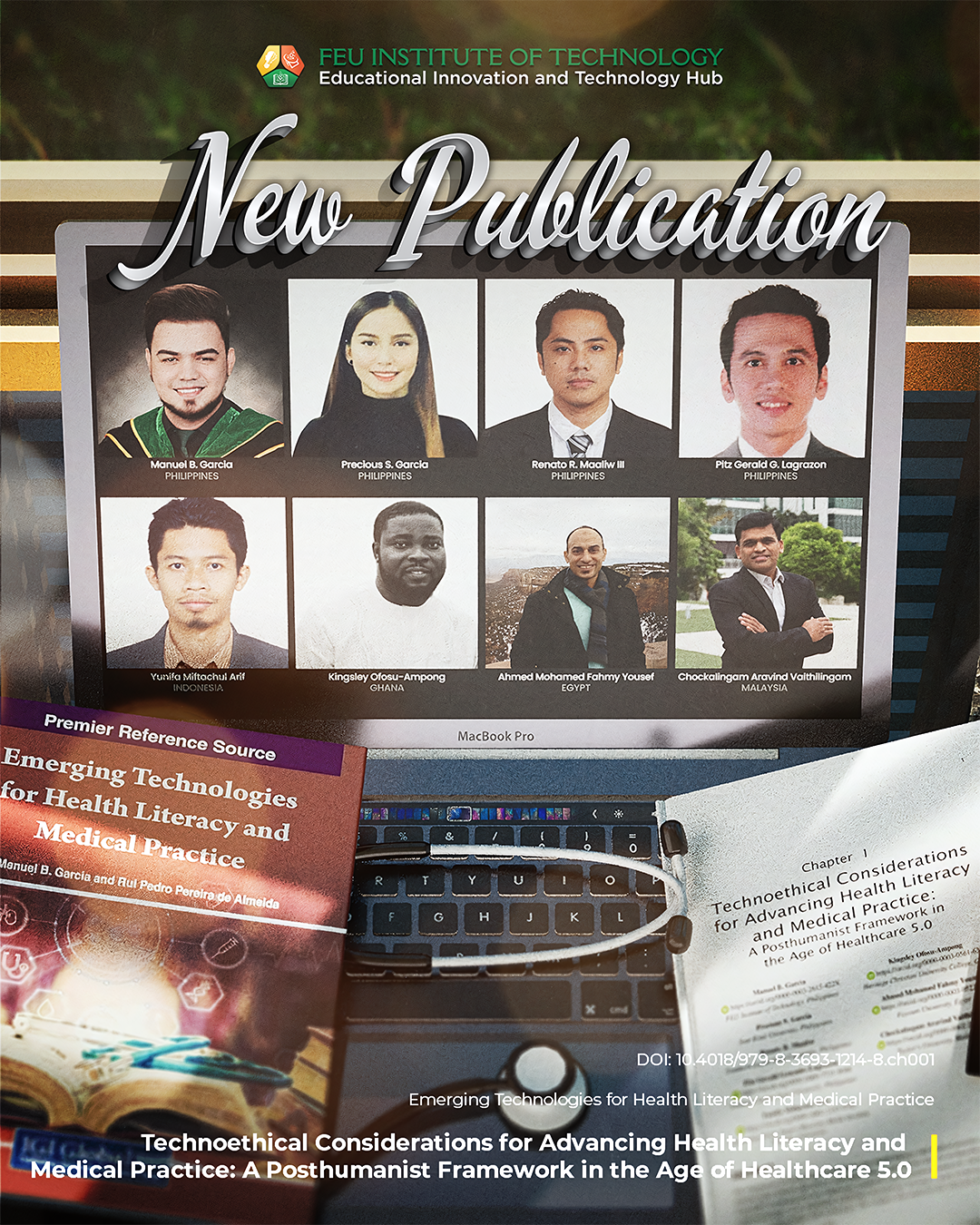Exploring Ethical Considerations in Technology-Driven Health Literacy and Medical Practice
An international research collaboration sheds light on building a healthcare landscape where technology empowers patients while upholding ethical principles.
March 6, 2024
Research
Modern technology has fundamentally reshaped the healthcare industry, ushering in a new era of possibilities. From artificial intelligence-powered diagnostics to telehealth consultations and personalized medicine, technology offers numerous opportunities to improve healthcare delivery, accessibility, and patient outcomes. The Healthcare 5.0 era, which represents the advanced stage in healthcare services development, saw the seamless implementation of advanced technologies and data-driven insights into healthcare, which provided healthcare professionals with more efficient tools for flexibility and accuracy in assessment and procedures.
However, alongside these exciting opportunities lie ethical challenges that require a framework or guidelines to ensure responsible technological integration in healthcare. Using algorithms in the decision-making process demands careful consideration regarding potential biases and the need for transparency and accountability to maintain trust and uphold the ethical principle of beneficence. The prevalence of unchecked technology in healthcare can also dehumanize the patient-doctor relationship.
Proposing a Technoethical Framework
The book chapter "Technoethical Considerations for Advancing Health Literacy and Medical Practice: A Posthumanist Framework in the Age of Healthcare 5.0" explores technoethical considerations for advancing health literacy and medical practice within a posthumanist framework.
The chapter’s authors, Manuel B. Garcia (FEU Institute of Technology, Philippines), Precious S. Garcia (Jose Rizal University, Philippines), Renato R. Maaliw III and Pitz Gerald G. Lagrazon (Southern Luzon State University, Philippines), Yunifa Miftachul Arif (Universitas Islam Negeri Maulana Malik Ibrahim Malang, Indonesia), Kingsley Ofosu-Ampong (Heritage Christian University College, Ghana), Ahmed Mohamed Fahmy Yousef (Fayoum University, Egypt), and Chockalingam Aravind Vaithilingam (Taylor’s University, Malaysia), shared their diverse expertise and insights to write the paper, featured as Chapter One in "Emerging Technologies for Health Literacy and Medical Practice" by Manuel B. Garcia and Rui Pedro Pereira de Almeida.

Challenges in Healthcare Era 5.0
As per the chapter, the Healthcare 5.0 era introduces an intricate web of challenges demanding systematic investigation and resolution. The coexistence of outdated systems with emerging technologies often results in compatibility issues, data interoperability problems, and potential disruptions in medical workflows. Moreover, healthcare providers can find it challenging to maximize the use and potential of modern healthcare technologies without adequate training and knowledge, leading to suboptimal patient results.
Using Posthumanism as a Guide
Posthumanism challenges conventional notions of human exceptionalism and advocates for a more inclusive understanding of existence with non-human entities and artificial intelligence. The authors believe a posthumanist framework can help stakeholders, healthcare professionals, and the public grasp the complexities between technology and medicine.
The chapter proposes a comprehensive and forward-looking technoethical framework to guide the healthcare industry toward a collective vision and responsible integration of cutting-edge innovations in the healthcare landscape while upholding moral principles through three components: stakeholders, responsibilities, ethical values, and activities.
Understanding the Four Components
Stakeholders are a critical component of the framework, as engaging stakeholders ensures a more inclusive and participatory approach wherein they can voice their insights and concerns to shape policies, ethical guidelines, and best practices in healthcare technology. Meanwhile, the stakeholders’ responsibilities, highlighted as the second component, will promote a symbiotic relationship between technological advancement and ethical stewardship, with stakeholders adhering to their responsibilities.
Ethical values serve as the bedrock of the entire framework and act as the guiding principles to dictate the moral course of action for all stakeholders to adhere to in integrating technology within the healthcare domain.
The last component of the framework entails a comprehensive exploration of activities aligned with the established ethical values and stakeholder responsibilities. These activities serve as a practical guide that outlines the necessary steps and best practices for integrating technology in a responsible and ethically conscious manner.
Conclusion and Areas to Work On
The chapter emphasizes that as healthcare technology advances, we must ensure it aligns with ethics, improves patient care, and benefits society. Technology should be a tool to foster human connection, empathy, and the dignity of patients, ultimately creating a healthier and more equitable world.
Patricia Bianca S. Taculao-Deligero is a Bachelor of Arts in Journalism Graduate from the University of Santo Tomas. She has an extensive portfolio from working in various local media outlets, with articles focusing on lifestyle, entertainment, agriculture, technology, and local government units, among other subjects. Her specialty is in feature writing. She is also proficient in news writing.
